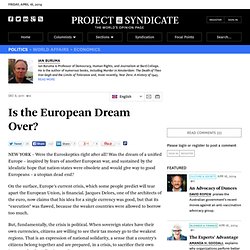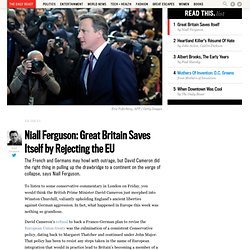

Prepare for riots in euro collapse, Foreign Office warns. Recent Foreign and Commonwealth Office instructions to embassies and consulates request contingency planning for extreme scenarios including rioting and social unrest.

Greece has seen several outbreaks of civil disorder as its government struggles with its huge debts. British officials think similar scenes cannot be ruled out in other nations if the euro collapses. Diplomats have also been told to prepare to help tens of thousands of British citizens in eurozone countries with the consequences of a financial collapse that would leave them unable to access bank accounts or even withdraw cash. Fuelling the fears of financial markets for the euro, reports in Madrid yesterday suggested that the new Popular Party government could seek a bail-out from either the European Union rescue fund or the International Monetary Fund. There are also growing fears for Italy, whose new government was forced to pay record interest rates on new bonds issued yesterday. Too big to fail, too vague to succeed. Europe’s fiscal woes grind on, and so do the analyses of economic pundits. I claim no such expertise, however, so I’ll speak of a different crisis.
It’s that of the very idea of Europe, increasingly the victim of its own emptiness. The builders of the New Europe have always had a clearer notion of what they wanted to avoid than of what they were trying to achieve. In the 1950s, Hell was still a vivid memory, and Never Again the guiding principle. As it was among nations that madness had raged, the perceived remedies were supranational. At the same time, the Cold War was under way. The Soviet empire crumbled, and Europe’s bonds with the U.S. slackened. So Europeans began to bemoan their “democratic deficit,” aggravated of late by the massive fiscal one. Just what does it mean to be a European? For centuries, what separated Europeans (nation, region, sect, language and class) far outweighed whatever may have united them. Yes, Europeans have grown more alike, just like everyone else. Is the European Dream Over? - Ian Buruma.
Exit from comment view mode.

Click to hide this space NEW YORK – Were the Euroskeptics right after all? Was the dream of a unified Europe – inspired by fears of another European war, and sustained by the idealistic hope that nation-states were obsolete and would give way to good Europeans – a utopian dead end? On the surface, Europe’s current crisis, which some people predict will tear apart the European Union, is financial. Jacques Delors, one of the architects of the euro, now claims that his idea for a single currency was good, but that its “execution” was flawed, because the weaker countries were allowed to borrow too much. But, fundamentally, the crisis is political. Even in nation-states, this is not always self-evident.
Since the EU is neither a nation-state nor a democracy, there is no “European people” to see the EU through hard times. Europe must be fixed politically as much as financially. Is this possible in a supra-national body like the EU? And who can say what is possible? Niall Ferguson: Great Britain Saves Itself by Rejecting the EU. The comedian and filmmaker has been the smartest and funniest person in the room since he was in high school (maybe even earlier).

Here he's profiled just after making his first film. Albert Brooks’ second album, A Star is Bought, is the best comedy record most of you have probably never heart. It was never released on CD and it’s not available on ITunes. And that’s a shame because the record—which was made in collaboration with Harry Shearer—is one of the finest comedy albums ever made. Never mind that it was nominated for a Grammy or that it was in many ways a precursor to faux-documentary style of This Is Spinal Tap, it Albert in top form. According to Paul Slansky, who wrote “Everybody Should Have an Albert” for The Village Voice in March 1979, Brooks owns the rights to A Star is Bought, he just isn’t motivated to re-release it. C'mon, Albert: Please. He knows funny when he sees it which is why he was a beauty fit to write about Albert. So whatever happened to Albert Brooks?